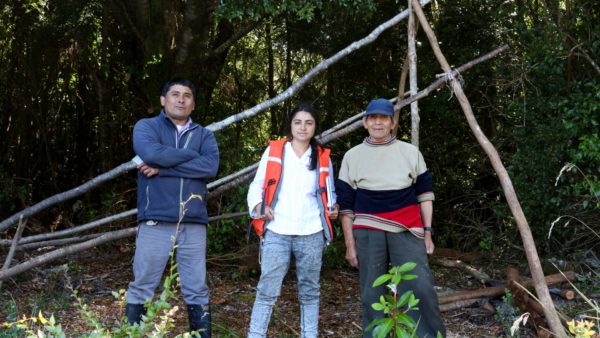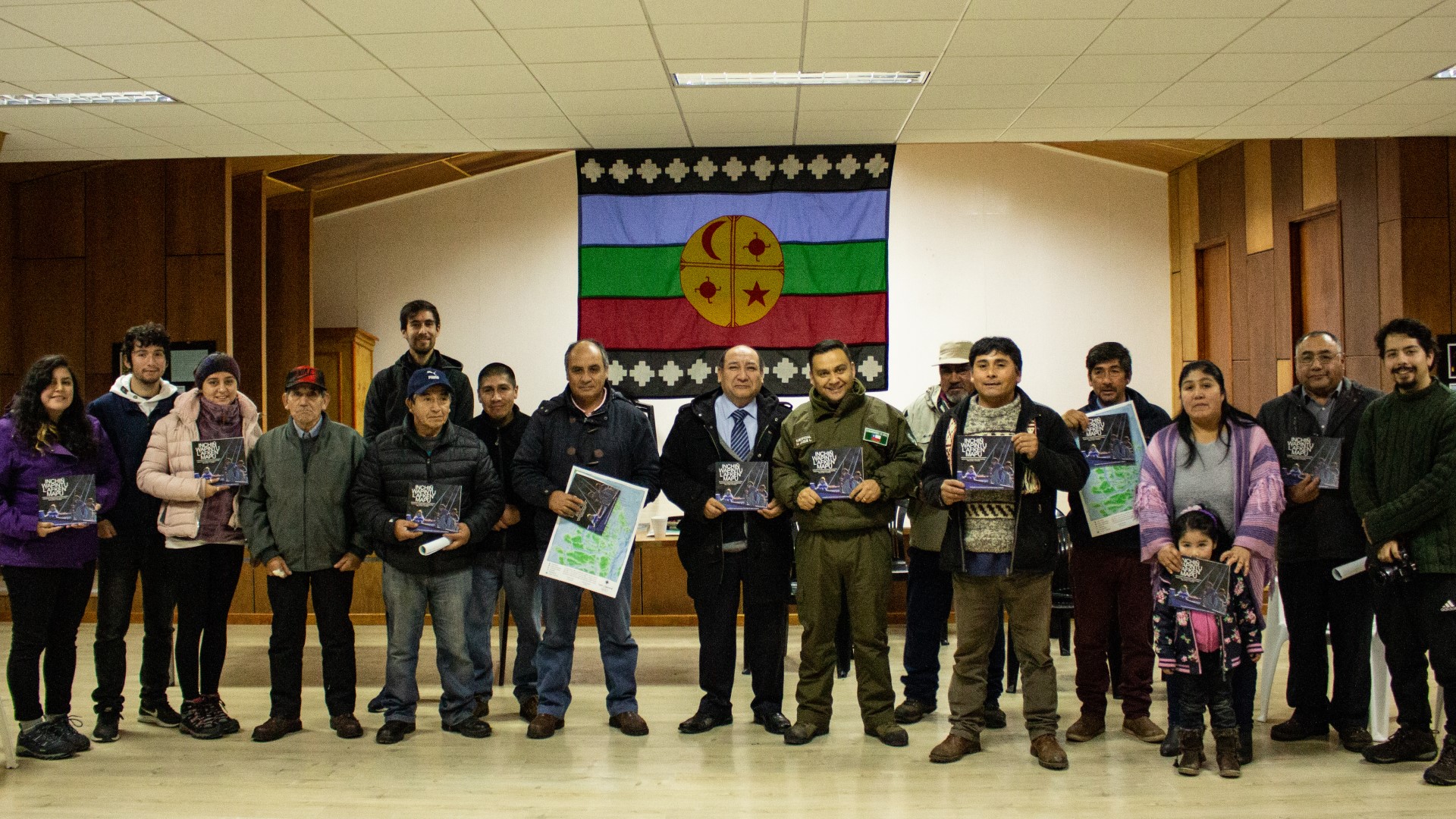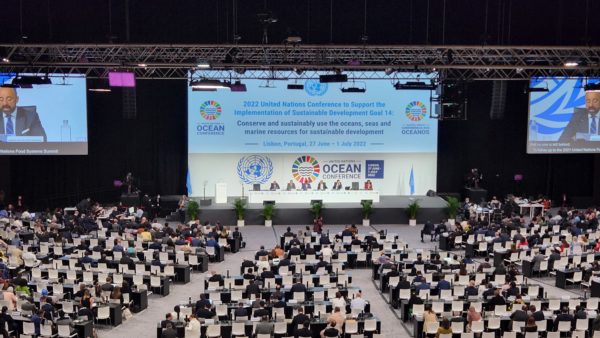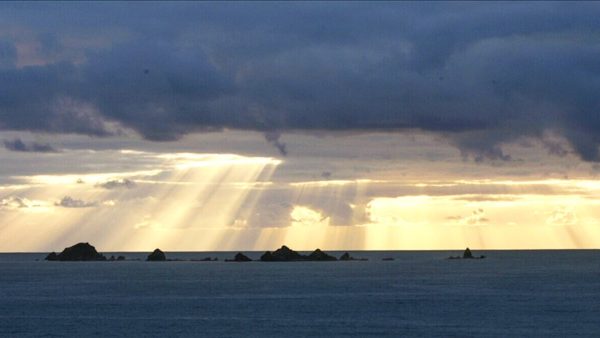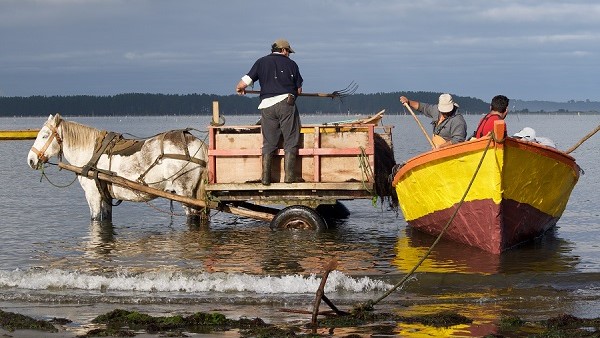In the Aysén region, the latest meeting between the Mapuche Williche People and the local community of small-scale artisanal fishers was held at a critical juncture in which the archipelagic marine ecosystem and those who inhabit it are threatened by salmon aquaculture, overfishing, poverty, and inequity
First published on 10/11/2022, and last updated on 04/19/2023
By the Asociación de Comunidades Territorio Williche-Chono (ICCA Consortium Member)
On August 4th and 5th of 2022, in the city of Coyhaique, the second meeting of Aysén coastal communities was held, following up on the commitment made at the previous meeting in November 2021. The purpose of this meeting was to collectively identify and address threats, proposals, and challenges related to marine conservation and sustainability.
At the conclusion of the second self-convened meeting, the Indigenous communities, coastal communities, and small-scale artisanal fishers committed to maintaining and strengthening their alliance to work on the governance and care of the territory and promote food sovereignty, equity, and the well-being of its inhabitants.
This event took place at a critical juncture in which threats to the archipelagic marine ecosystem and its inhabitants have brought coastal communities together to combat salmon aquaculture, overfishing, poverty, and inequity. The more than 60,000 miles of coastline and 40,000 islands that make up the Patagonia marine areas have been the target of unrestrained overexploitation that jeopardizes the immense biocultural resources, the marine biodiversity, and the main livelihoods in the territory.
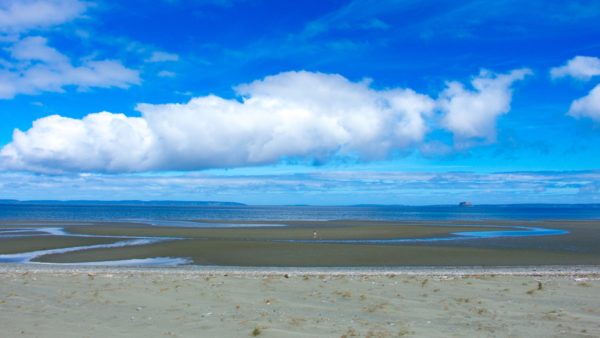
The lack of effective protection by the state has prompted Indigenous communities to advocate for the recognition of their territory by requesting to have it classified as a Coastal and Marine Area of Indigenous People or ECMPO (Espacios Costeros Marinos de Pueblos Originarios). This would provide legal protection for the uses and practices of the communities not covered by other legal instruments, such as the Law on Fisheries and Aquaculture.
To address this socio-environmental crisis, the participants stated: “We have made our decision, and we reiterate that the ECMPOs (Law 20.249) are our best option to halt this destruction. It allows us to merge the conciliatory efforts of Indigenous communities, coastal communities, and small-scale artisanal fishers, thereby forging a new path of collective and multicultural governance rooted in buen vivir. Our traditional and ancestral knowledge, as well as the customary use – an objective targeted by the ECMPOs, can be the best way to manage the currently endangered species and ecosystems.”
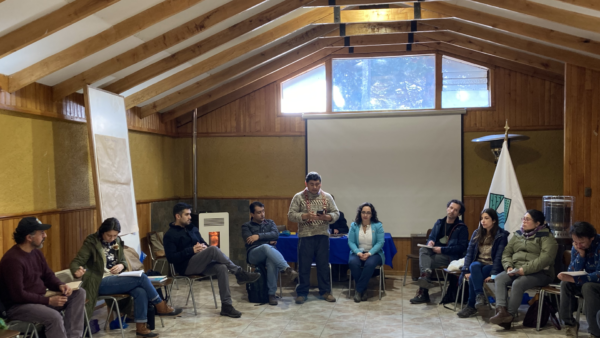
One of the primary outcomes of the meeting is a clear call to the regional authorities to respect the collective rights of Indigenous Peoples, local communities, and small-scale artisanal fishers and to facilitate the administrative procedures that currently lead to delays in the processing of ECMPO applications, in addition to allocating resources to help guide the communities during the different stages of the process.
During the session, there was a request to amend the neglected “Presidential Decree No. 6,” which modifies the internal regulations of the Regional Commissions for the Use of Coastal Areas (CRUBCs), published on June 24th, 2022. This decree does not explicitly mention the role of Indigenous communities in managing coastal areas; in failing to do so, their territories of life and their role in ensuring the ecosystem’s protection and the buen vivir are made invisible.
